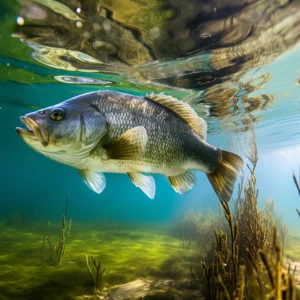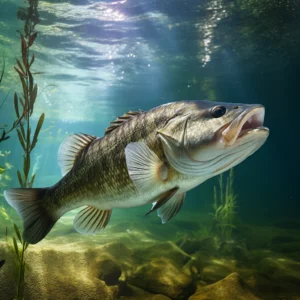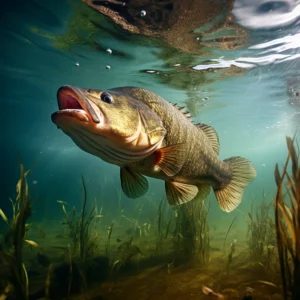Key Takeaway: How smart are largemouth bass?
Surprisingly intelligent, largemouth bass rank among the most cognitively advanced freshwater fish. They possess exceptional long-term memory, demonstrate rapid learning and adaptability, innovate to solve problems, and exhibit signs of social intelligence. Their sophisticated sensory abilities further enhance their mental acumen, making them a captivating subject for both anglers and researchers alike.
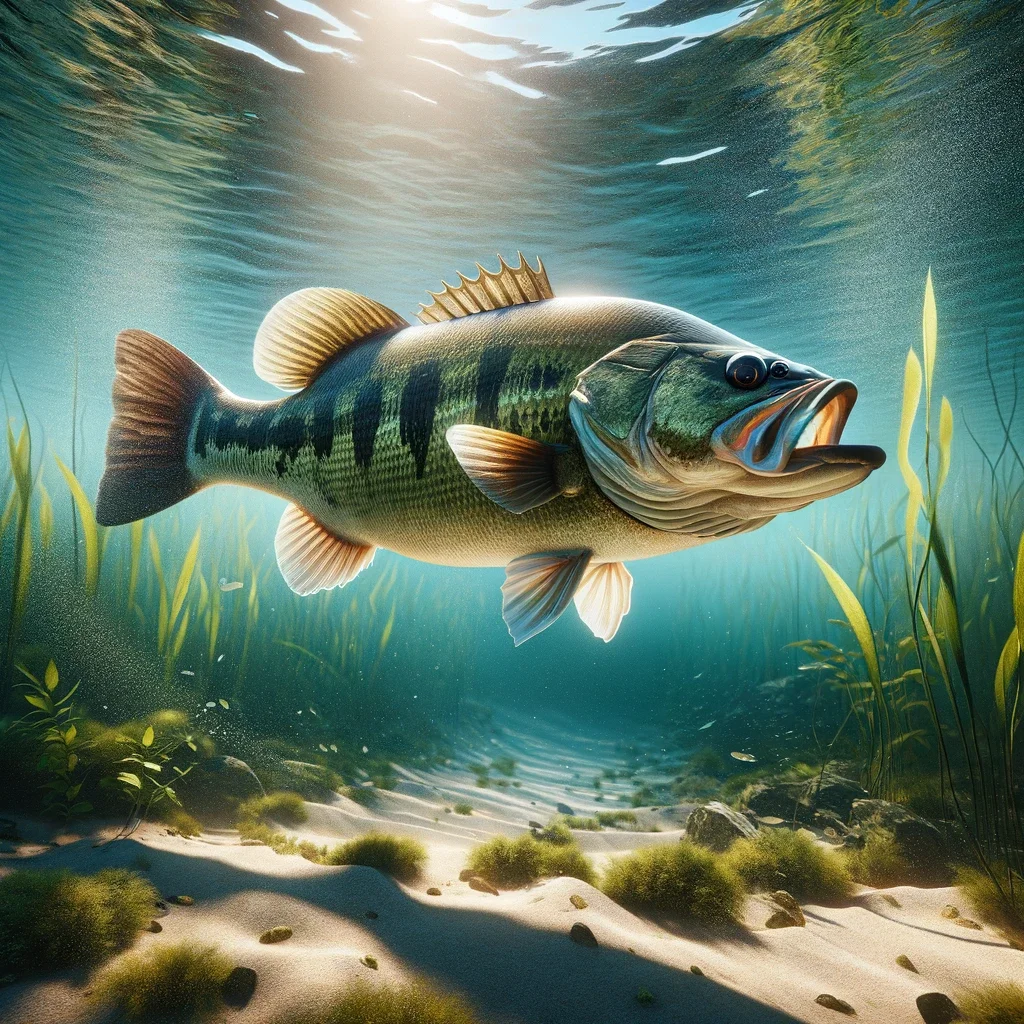
The Remarkable Intellect of the Largemouth Bass
Largemouth bass are one of the most popular and beloved game fish species in the United States. Anglers spend millions of dollars and endless hours each year in pursuit of these iconic fish. However, few people realize just how intelligent largemouth bass truly are. Contrary to their reputation as primitive instinct-driven animals, bass exhibit some remarkably complex cognitive abilities that rival those of animals like dolphins, primates, and even humans. Their combination of adaptable behaviors, memory, sensing abilities, and social intelligence makes the largemouth bass one of the smartest fish in freshwater.
Largemouth Bass Have Excellent Memories
Numerous studies have demonstrated the impressive long-term memory capabilities of largemouth bass. Once they have encountered a particular location, food source, or event, bass can remember it for extremely long periods of time. This allows them to repeatedly return to productive feeding areas, avoid dangers, and identify patterns in their environment.
- In maze experiments, bass were able to navigate to a food reward after being removed from the maze for over a year, demonstrating amazing location memory.
- Bass associate cover objects like logs or vegetation with finding prey. When these objects are moved, bass will continue visiting the original location, showing they memorized the site itself.
- After being caught by anglers, bass remember the encounters. They become much harder to catch on the same lure type for extended periods.
- Bass memorize seasonal patterns and migrations connected to spawning, feeding, and temperature changes. Their memory allows them to be in the right place at the right time.
This ability to remember detailed information for long durations gives bass a tremendous advantage in finding food year after year while avoiding danger. Their impressive memory is on par with many warm-blooded animals.
Their Ability to Adapt and Learn Quickly
In addition to their excellent long-term memory, largemouth bass also demonstrate a remarkable ability to adapt and learn new information quickly. This cognitive flexibility allows bass to modify their behaviors as conditions change to take advantage of new opportunities.
- Bass can rapidly adjust their feeding activity times to match the availability of prey. Within days, they switch from being daytime to nighttime feeders when prey is abundant at night.
- After anglers introduce new colored lures or behavior techniques, bass can recognize them as unnatural and avoid them after just one capture experience.
- Through association with food rewards, bass can learn to approach specific sounds like buzzers or bells that researchers make before feeding.
- When prey density changes in a lake, bass can quickly shift to ambush techniques, varied habitat locations, and targeting different prey species.
This adaptability points to advanced learning capacities in largemouth bass similar to those found in intelligent mammals. They assimilate information from their surroundings and modify behavior accordingly to gain an advantage.
Bass Can Innovate Solutions to Problems
At times, largemouth bass appear to devise innovative solutions to gain access to food in unique situations. This ability to improvise and problem solve using tools shows an advanced cognitive complexity.
- Bass have been observed carrying live crayfish into deeper water before eating them, possibly to avoid dangerous shallow water.
- Groups of bass sometimes work together to herd schools of bait fish into tight areas for easy feeding.
- There are accounts of bass propping prey fish on logs or rocks to trap them in place for an easy strike.
- Young bass blow water disturbances that imitate prey on the surface, then ambush attack fish that come to investigate.
These observations indicate bass are not just Pavlovian responders, but have some capacity for improvisation, tool use, and creative problem solving.
Largemouth Bass Show Signs of Social Intelligence
In addition to their individual learning skills, largemouth bass also exhibit an unexpected degree of social intelligence in their interactions with other bass. They establish social hierarchies, remember past encounters with specific individuals, and may even cooperate in some circumstances.
- Bass recognize preferentially recognize other members of their own species compared to other fish.
- Dominant bass chase subordinates from preferred habitats and feeding spots, recognizing their social status.
- After losing fights, bass remember the victor and act submissively in future encounters.
- Small groups of bass sometimes work together to herd bait balls, possibly using coordinated ambush techniques.
This ability to recognize other individuals and remember social interactions is not common in fish. It suggests advanced social processing abilities in largemouth bass similar to many mammals.
Fascinating Largemouth Bass Senses
Largemouth bass integrate a suite of finely tuned sensory abilities that allow them to effectively hunt and navigate their environments. This combination of specialized senses gives bass an almost “sixth sense” of their surroundings.
Sight
- Bass have excellent vision, including color discrimination. They can pick out small details like fishing lures.
- Their eyes adjust for varied lighting, from faint deep water to bright surfaces.
Smell
- An amazing sense of smell allows them to detect tiny concentrations of odors in the water.
- They use smell to identify promising feeding locations from a distance.
Hearing
- Bass hear a wide range of frequencies, from the splash of prey on the surface to the low rumblings of boat engines.
- Their inner ears detect directional vibrations, helping locate sound sources.
Lateral Line
- This sensitive organ detects minute changes in water pressure from moving prey.
- Bass feel vibration sources from up to 30 feet away with their lateral line sense.
These complementary senses give bass a detailed map of their surroundings. They integrate this sensory information to precisely track, hunt, and capture prey.
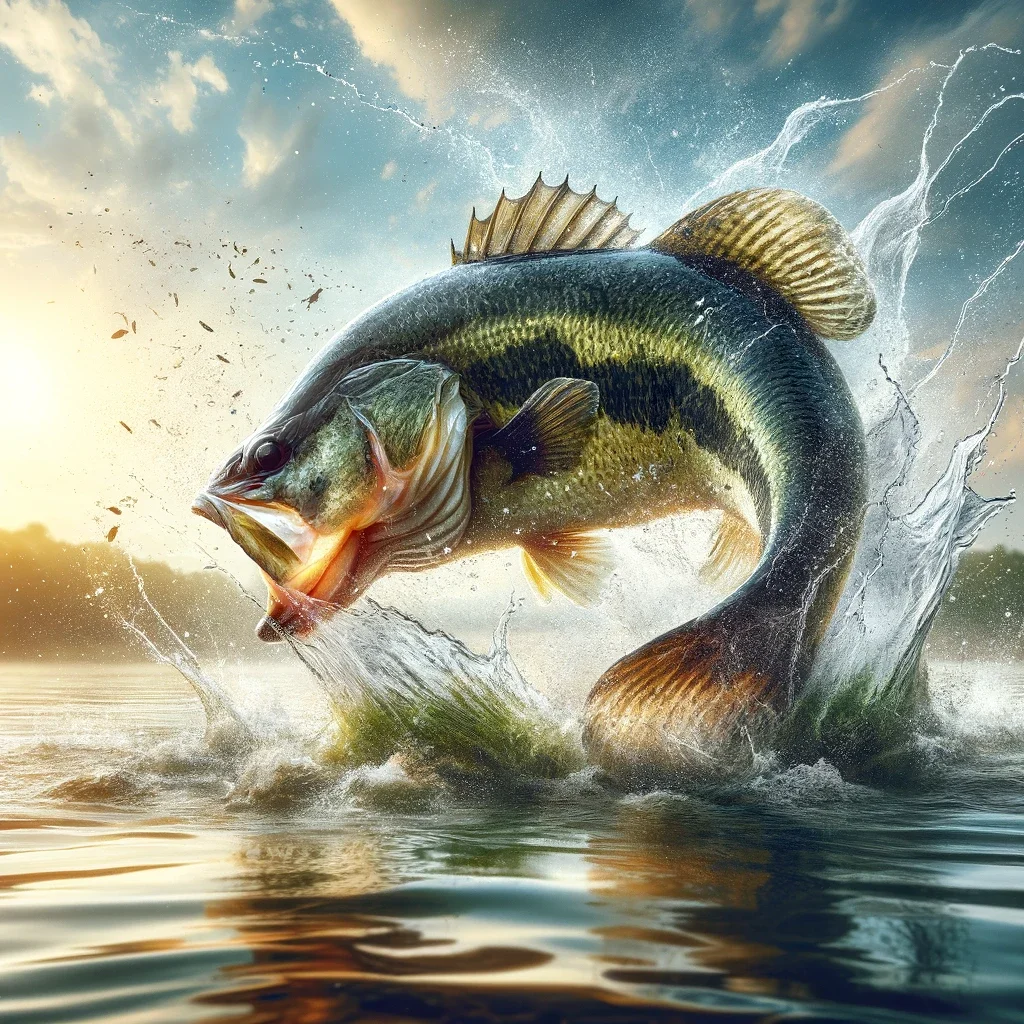
How Smart are Largemouth Bass Compared to Other Fish?
So how do largemouth bass stack up in intelligence compared to other fish species? Research indicates they possess cognitive abilities far beyond most freshwater fish.
- Bass have a larger forebrain size and expanded cerebellum compared to related sunfish species. This indicates greater cognitive power.
- They perform better on complex spatial navigation and memory tasks compared to crappie, bluegill, and their other cousins.
- Among popular sport fish, only trout and walleye may rival bass in general intelligence and adaptability.
- Bass handily outperform bottom dwellers like catfish and carp on learning and problem-solving tests.
While all fish show unique adaptations, largemouth bass display some of the highest overall brainpower in freshwater. Their combination of smarts and aggression makes them worthy opponents for any angler.
Key Takeaways on Largemouth Bass Intelligence
In summary, modern research has revealed some remarkable truths about the mental talents of the largemouth bass:
- They have exceptional long-term memory for locations, events, and patterns.
- Bass adapt quickly to changes and can learn new information rapidly.
- They are capable of innovative solutions and primitive tool use to access food.
- Bass show signs of social intelligence in recognizing other individuals and cooperating.
- Their senses are finely tuned for detecting prey and navigating environments.
- Bass rank among the most intelligent freshwater sport fish.
So while they may not play chess or do taxes, largemouth bass display some impressively complex cognitive abilities that rival many animals. Next time you are matched wits with one of these clever fish, appreciate you are angling against one of the smartest creatures in the lake!

